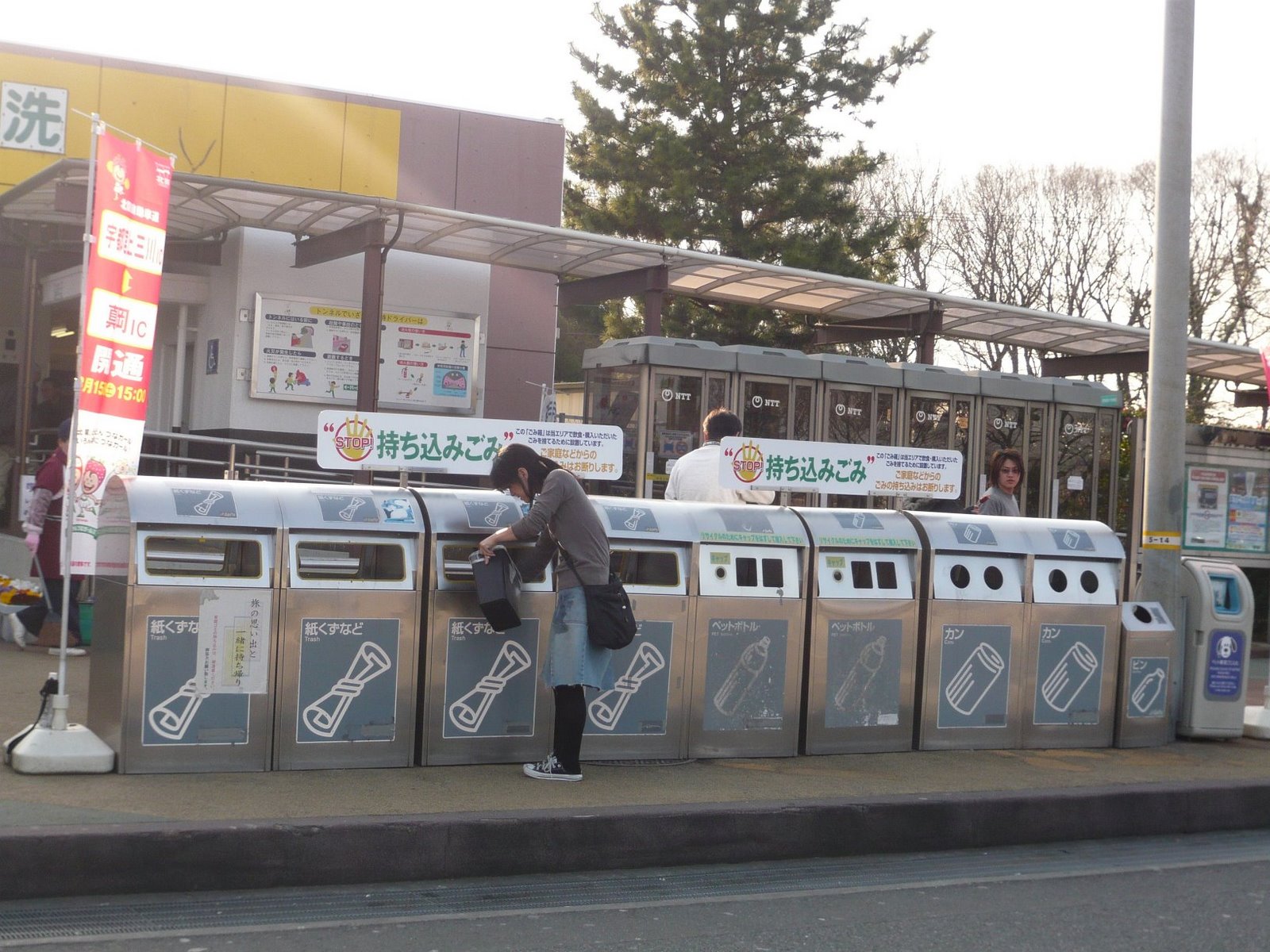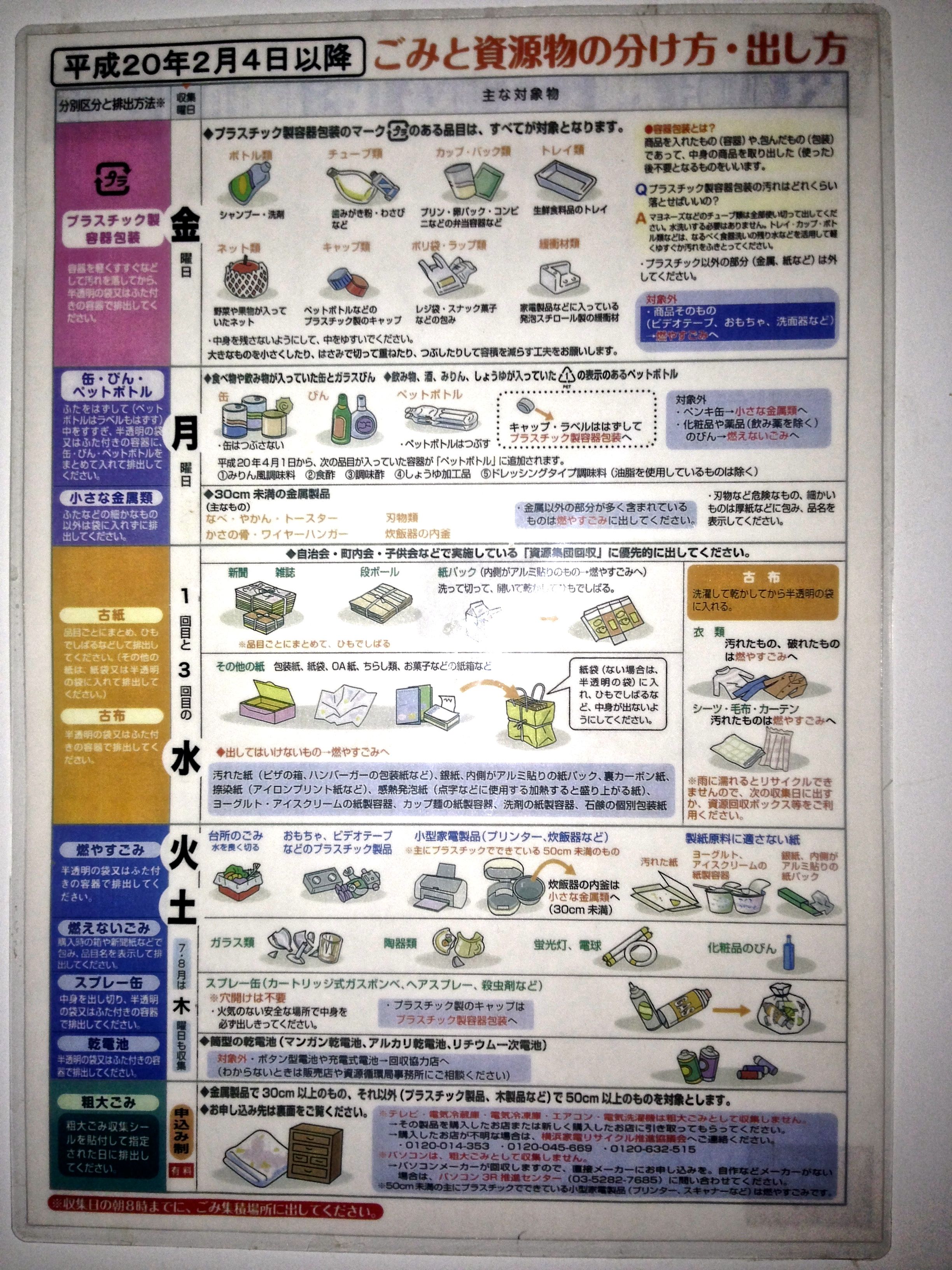Dipa Niranjan
In Japan, garbage disposal is far from rubbish—it’s in a different league of its own, even when compared to Singapore. Dipa Niranjan tells us just how exacting the Japanese are when it comes to handling their trash.
After living in Japan, I will never look at garbage the same way again.
As long as we don’t litter, we Singaporeans can generally dispose of our rubbish whenever we feel like it. The majority of us live in apartments where we have rubbish chutes in our homes. If we’re out on the street and have something to dispose of, trash cans are everywhere.
This is not the case in Japan. I have five rubbish bins in my apartment.
First, you have to sort your garbage into separate bags depending on the material. Burnables. Non burnables. Paper. Plastic. Glass. Aluminium cans. Clothing. Glass. Dangerous items like broken glass. And it doesn’t end there.
Before it goes in the bag, you have to clean… and dry it. After you’ve done all of that, you have to make sure it’s disposed in the right kind of plastic bag, and put out for garbage collection on the right day.
If that isn’t confusing enough, the rules vary from prefecture to prefecture. So what works in one city may not work in another.
Oh the joy.
If you’re out and about and have something to toss, you’ve got to take it to the convenience store and dispose it in the right bin.
When I first came to Japan a year and three months ago, I would stare at the bins at the convenience stores like a deer in the headlights and wonder what in the world I was supposed to do.
Sounds difficult?
Complicated, perhaps. But difficult? I don’t think so.
Cleaning my trash before tossing it out was not a habit that I had cultivated. And I definitely wasn’t accustomed to separating my garbage into different bags depending on the kind of material it’s made of.
But these days I can’t imagine doing it any other way. It’s all about our habits. Cleaning and sorting my garbage has become second nature to me.
Once you’ve filled a bag and it’s ready to be taken away by the musical garbage man (all foreigners seem to mistake it for the ice cream man), you have to physically take it out and leave it at the rubbish collection point. Make sure you tie the bag tightly, because if you don’t, one of the crows in the neighbourhood might go through your trash and leave a mess of your personal items all over the place.
Not a pretty sight to see rotting bananas and other more delicate items out in the open.
Trust me, it happens.
If you decide to be a little cheeky and leave your garbage out on the wrong day, rest assured that your rubbish will somehow magically grow legs and find its way back to your place.
Not that it’s ever happened to me, but I’ve heard stories.
Or alternatively, you’ll get one of those angry looking red stickers pasted on top of your rubbish. You don’t need to read Japanese to know that someone’s done something not quite right.
You know that saying – don’t air your dirty laundry in public. In Japan, it’s more of a ‘don’t air your dirty rubbish in public’. Yes, it’s trash, and yes it’s not stuff you want anymore. But we’ve all heard stories of celebrities getting angry at the paparazzi for going through their trash and there’s a good reason for it.
So it’s best you shred those papers you don’t want anyone to read, and double bag those personal items you don’t want those crows getting to before the garbage man does.
You live, you learn.
We Singaporeans recycle. We all grew up hearing about the 3Rs: Reduce, reuse and recycle. A lot of us do recycle – especially stuff like newspapers, cardboard boxes and the like. We also give away our old clothes. We have catalytic converters in our cars. Generally speaking, I do believe we care about the environment.
But after living in Japan, I don’t think I’ll ever look at rubbish the same way again. When I return home, I might just scrub and rub that takeaway container of mee goreng and put in a special bag with all the other plastic items.
People will probably think I’m strange, but that’s what happens after you live in the land with the cleanest rubbish in the world.
This article was first published at http://www.inconvenientquestions.sg
About the author:
Dipa Niranjan teaches English to Japanese teenagers in the Greater Tokyo Area. Educated in the land of Kangaroos and Koalas as well as the holy city of Jerusalem, this born-and-bred Singaporean strongly believes that home is where the chicken rice is. She enjoys cooking and is often contemplating what to put in her bento for lunch.


